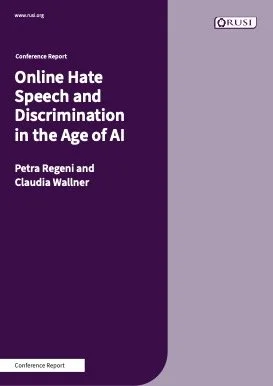By Jessica White, Claudia Wallner, Galen Lamphere-Englund, Love Frankie, Rachel Kowert, Linda Schlegel, Ashton Kingdon, Alexandra Phelan, Alex Newhouse, Gonzalo Saiz and Petra Regeni
As the popularity and social significance of online gaming have surged, with more than three billion gamers encompassing a broad spectrum of the global population, the urgency to understand how gaming spaces constitute formative identity- and community-building environments is more essential than ever. While acknowledging that many gamers have positive experiences, this project aims to understand, through a gender and intersectional lens, how socialisation processes coupled with exposure to harassment, hate-based discrimination and extreme content can potentially lower resilience to radicalisation in gaming and gaming-adjacent spaces. Governments are increasingly paying attention to this issue, considering regulatory requirements and effective intervention designs. This heightened awareness necessitates a deeper analysis of the nuances and complexities of the threats and risks. Therefore, this report aims to provide much-needed analysis of these issues, guiding the reader through the key research findings of the project ‘Examining Socialization with a Nexus to Radicalization Across Gaming (-Adjacent) Platforms Through a Gender Lens’, which was funded by Public Safety Canada, led by RUSI and implemented by a consortium of members of the Extremism and Gaming Research Network. Taking a cross-cultural global approach and drawing on primary survey data and data collected from and on multiple gaming and gaming-adjacent platforms, this project aims to provide accessible gender-sensitive research analysis, along with pragmatic recommendations for practitioners and policymakers engaged in these spaces. Following a conceptual framing section and a chapter outlining project scope and methodology, project analysis highlights the following four key analytical focuses: 1. An assessment of the prevalence of harmful, toxic and extremist content in gaming spaces. 2. Identification of the importance of (offline) identity and culture in the formation of gamer identity and communities. 3. Analysis of gender norms and dynamics in gaming communities and their potential exploitation for radicalisation and recruitment. 4. Exploration of where gendered socialisation processes combined with normalised exposure to extreme ideas and content can reduce resilience to radicalisation. Overall, this project adds new insights to the growing body of research on the topic of extremism and gaming through the gender and intersectional lens it applies to understanding the complex relationships between gaming, identity, community and radicalisation. Additionally, it breaks ground with the focus on cross-cultural data collection. However, it also highlights the need for further research to fully grasp how these dynamics play out across different contexts and identities, contributing to more nuanced and effective approaches to countering radicalisation in gaming spaces.
London: Royal United Services Institute for Defence and Security Studies RUSI, 2024. 81p.




